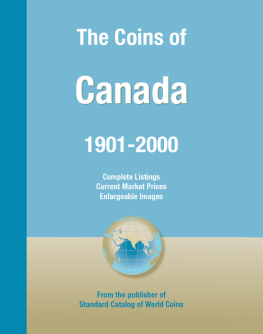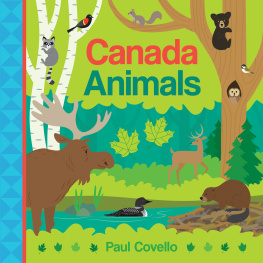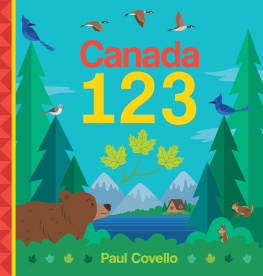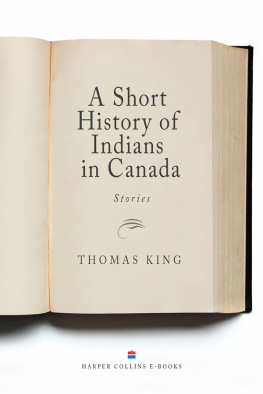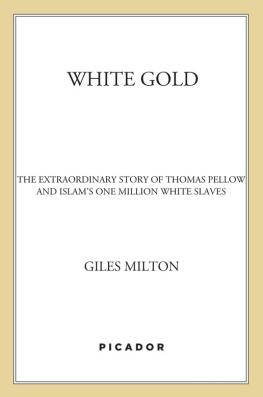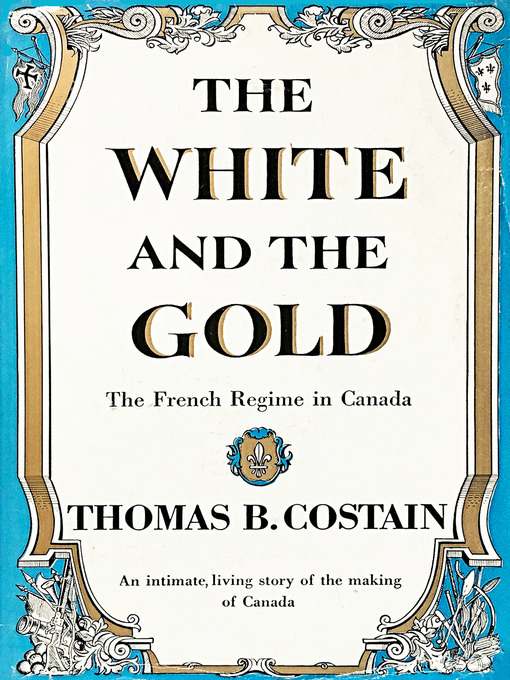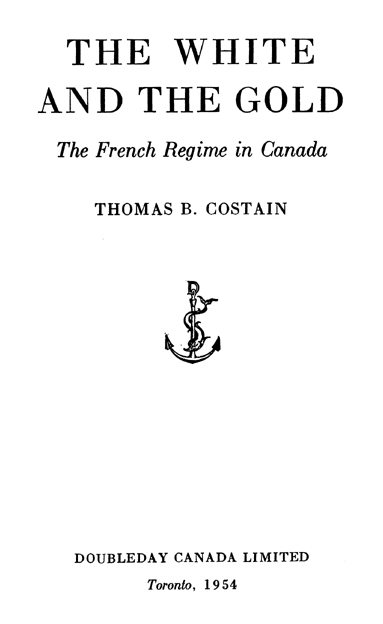BOOKS BY
THOMAS B. COSTAIN
The White and the Gold: The French Regime in Canada
The Silver Chalice
The Magnificent Century: The Pageant of England
Son of a Hundred Kings
The Conquerors: The Pageant of England
High Towers
The Moneyman
The Black Rose
Ride with Me
For My Great Folly
Joshua: A Study in Leadership
(in collaboration with Rogers MacVeagh)
COPYRIGHT, 1954, BY THOMAS B. COSTAIN
ALL RIGHTS RESERVED
eISBN: 978-0-307-80957-5
v3.1
To All My Friends in Canada
CONTENTS
Introduction
T HERE have been many histories of Canada, and some of them have been truly fine, but it seemed to a group of writers, all of whom were Canadians or of Canadian stock, who met a few years ago, that the time had come for something different. We all felt the need for a version which would neglect none of the essential factors but would consider more the lives of the people, the little people as well as the spectacular characters who made history, and tell the story with due consciousness of the green, romantic, immense, moving, and mysterious background which Canada provides. In addition there was a strong feelingand this clearly was the governing impulsethat Canadas rise to nationhood should be traced to the present day, when the land which was once New France and then the Dominion of Canada promises to develop into one of the great powers of the globe.
This, it will be allowed at once, was what might be termed a rather tall order. However, there was considerable discussion about it, both then and later, and the outcome was a plan to do a formidably long version, all the way from John Cabot to St. Laurent. It was to be the joint work of a number of Canadian writers, one for each volume, and perhaps as many as six volumes.
It fell to my lot to begin, and this volume tells the story of the earliest days, the period of the French regime, concluding near the end of the seventeenth century. It has been with me a labor of love. Almost from the first I found myself caught in the spell of those courageous, colorful, cruel days. But whenever I found myself guilty of overstressing the romantic side of the picture and forgetful of the more prosaic life beneath, I tried to balance the scales more properly; to stop at the small house of the habitant, to look in the brave and rather pathetic chapel in the wilderness, to stare inside the bare and smoky barracks of the French regulars. It is, at any rate, a conscientious effort at a balanced picture of a period which was brave, bizarre, fanatical, lyrical, lusty, and, in fact, rather completely unbalanced.
No bibliography is appended because I found, when the time came to prepare one, that the point of no return had been reached. A list of roughly a thousand itemsbooks, papers, extracts, manuscriptswhich had been read or, at least, dipped into, would be of small value because of its very size. I shall content myself, therefore, with the perhaps obvious statement that in writing of this period two great sources constitute a large part of the preparation, that uniquely conceived and organized mass of remarkable material, the Jesuit Relations, and the crystal-clear reconstruction in Francis Parkmans splendid volumes.
The second volume, which will deal with the period of the English and French wars, is now being prepared by Joseph Lister Rutledge, for many years editor of the Canadian Magazine and a fine scholar with the capacity to keep a great event equally great in the telling.
T HOMAS B. C OSTAIN
January 1, 1954
CHAPTER I
John Cabot Speaks to a Kingand
Discovers a Continent
1
I T MAY seem strange to begin a history of Canada in an English city, a bustling maritime center of narrow streets in a pocket of the hills where the Avon joins the Severn. But that is where the story rightly starts: in the city of Bristol, which had become second only to London in size and was doing a thriving trade with Ireland and Gascony and that cold distant island called Iceland which the Norsemen had discovered. It starts in Bristol because a Genoese sailor, after living some time in London, had settled there with his wife and three sons, one John Cabot, or Caboote as the official records spelled it, a sea captain and master pilot of some small reputation. He arrived in Bristol about 1490, when the place was fairly bristling with prosperity and the streets had been paved with stone and the High Cross had been painted and gilded most elaborately, and out on Redcliffe Street the Rudde House stood with its great square tower, the home of those fabulous commoners, the Canynges, as evidence of the wealth which could be gained in trade.
It was not strange that little attention was paid at first to this dark-complexioned, soft-spoken foreigner. Bristol, aggressive and alive to everything, had been fitting out ships to explore the western seas in search of the Vinland of the Norse sagas and the legendary Island of the Seven Cities which had been found and settled more than seven centuries before by an archbishop of Oporto fleeing the conquering Moors with six other bishops. The waterfront buzzed with the strange new talk which had been on the tongues of sailors for years, the suddenly aroused speculations as to what lay beyond the gray horizon of the turbulent Atlantic. The men of Bristol doffed their flat sea caps to no one. What had they to learn from a mariner who knew only the indolent ease of southern seas, most particularly of the Mediterranean, where the leveche blew insistently across from Africa with a dank hot scent?
But then it became known that another of these bland-tongued fellows, one Christopher Columbus, had set sail westward from Spain with three small ships and had found land hundreds of leagues across the gray waters, and that because of this Ferdinand and Isabella of Spain were claiming all the trade of Cathay. Bristol recalled that this man John Cabot had been voicing the same theories which had induced Their Most Christian Majesties to gamble a fleet on such a thin prospect. Cabot also had said that the world was round and that the shortest route to Cathay and Cipango led straight west. They got out their charts and compasses now and with new respect listened to him expound his belief that where Columbus had landed was the midriff of Asia and that the way around the world would be found far to the north. This was heady talk. It meant that there were still lands and seas to which Spain could not yet lay claim, that the flag of England could lead the way to equal wealth and glory. It was decided to seek royal sanction for a venture well to the north of the route which the inspired Columbus had taken.
Henry VII was King of England at this time and he was not exactly popular in Bristol. In the year 1490 he had paid the city a ceremonial visit and had received a truly royal welcome; but on leaving he had shocked them by laying a fine of five per cent on all men worth in excess of twenty pounds. Their wives, he said, had broken some dusty and long-forgotten sumptuary law by dressing themselves finely in his honor. He had called this fine a benevolence, but the outspoken Bristol men had found other words for it. The seventh Henry, in point of fact, had little gift for winning the hearts of his subjects. The first of the Tudor kings was able and far-seeing, but he was cold, withdrawn, hating no man but loving none, incapable of much enthusiasm save for the gold he was accumulating through the efficient raking of the legal fork of Morton, his chief minister.


